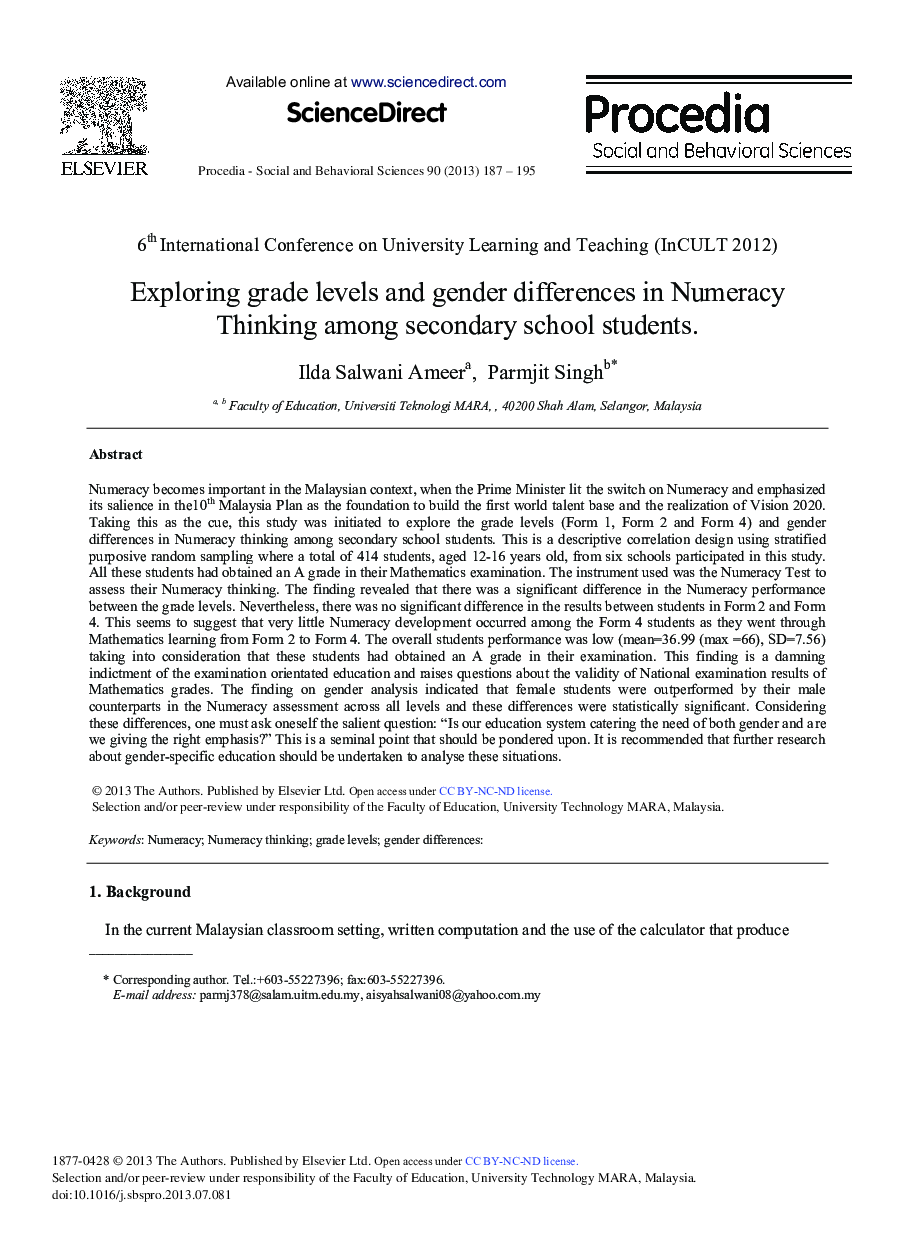| Article ID | Journal | Published Year | Pages | File Type |
|---|---|---|---|---|
| 1116380 | Procedia - Social and Behavioral Sciences | 2013 | 9 Pages |
Numeracy becomes important in the Malaysian context, when the Prime Minister lit the switch on Numeracy and emphasized its salience in the10th Malaysia Plan as the foundation to build the first world talent base and the realization of Vision 2020. Taking this as the cue, this study was initiated to explore the grade levels (Form 1, Form 2 and Form 4) and gender differences in Numeracy thinking among secondary school students. This is a descriptive correlation design using stratified purposive random sampling where a total of 414 students, aged 12-16 years old, from six schools participated in this study. All these students had obtained an A grade in their Mathematics examination. The instrument used was the Numeracy Test to assess their Numeracy thinking. The finding revealed that there was a significant difference in the Numeracy performance between the grade levels. Nevertheless, there was no significant difference in the results between students in Form 2 and Form 4. This seems to suggest that very little Numeracy development occurred among the Form 4 students as they went through Mathematics learning from Form 2 to Form 4. The overall students performance was low (mean=36.99 (max =66), SD=7.56) taking into consideration that these students had obtained an A grade in their examination. This finding is a damning indictment of the examination orientated education and raises questions about the validity of National examination results of Mathematics grades. The finding on gender analysis indicated that female students were outperformed by their male counterparts in the Numeracy assessment across all levels and these differences were statistically significant. Considering these differences, one must ask oneself the salient question: “Is our education system catering the need of both gender and are we giving the right emphasis?” This is a seminal point that should be pondered upon. It is recommended that further research about gender-specific education should be undertaken to analyse these situations.
